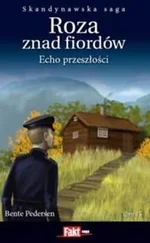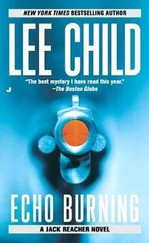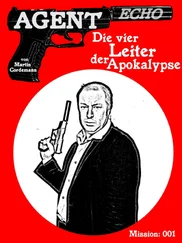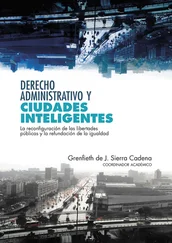Also by F. G. Cottam
The House of Lost Souls
Dark
ECHO
F. G. Cottam
Thomas Dunne Books
St. Martin’s Press
New York

DARK ECHO. Copyright © 2008 by F. G. Cottam. All rights reserved.
For my lovely sister, Kate
Prologue
Rouen, September 1917
Captain Destain was with Sergeant Boulez on the steps at the western entrance to the cathedral when the mist came in. They were sharing coffee brewed at a stall in one of the warren of streets surrounding the great building. He was adamant that neither man had ever in their lives seen the like of this fog. It funnelled and unfurled through the cramped thoroughfares, obscuring detail and devouring space. Destain described it as roiling and impenetrable, worse than anything he had ever encountered before near the sea, in such ports it had been his experience to visit as Antwerp or Zeebrugge. It was palpable, this fog.
Had his men not been such experienced fighters, he thought some of them might have slipped on their gas masks in panic, believing it a chemical attack launched from long range by the heavy German artillery. But they had not heard the whistle of shells that morning. There had been no bombardment from the German front, forty miles to the east. And as they were shortly to come to learn, it was not gas that was attacking them.
Boulez was a mountain man. He had been born and grown up in a village high in the French Alps, where his father had taught him, hunting with an antique flintlock, the marksmanship for which he was so distinguished in the corps. He had an Alpine appreciation of weather, a mountain man’s caution and hard-earned expertise. He described the fog as something similar to the mantle of invisibility that descends sometimes at altitude. It was so sudden and impenetrable that your instinct, caught in it, was to drop on all fours like a frightened animal to the safety and security of the snow powdering the earth. Except that there was no snow on the steps of the cathedral in Rouen in September. And according to Boulez, what differed about this phenomenon of the weather was that it was not the familiar, goose-feather grey of the high Alps. It was black in its swirling origins.
Destain had always maintained to his men that the cathedral was not a fortress. You could garrison a cathedral. But you could not make impregnable a building to which all were welcome by the very nature and purpose of its existence. The rich and the poor, the infant and the elderly, they were indiscriminately invited here to worship. In war even more than in peacetime, the role and symbolism of the cathedral as a place of spiritual solace had itself to be sacrosanct.
Nevertheless, the cathedral was heavily fortified. Destain’s men were crack troops, well trained, vigilant. They were at company strength. There were eight men altogether at the western façade, two marksmen atop the Saint-Romain Tower to its right and two up in the Beurre Tower to its left. There were units of three guarding each of the north and south portals and there were a further two sentinels at the entrance to the cathedral vault. All were armed with a carbine and a heavy calibre cavalry pistol issued to them because their fighting might have to be done at close quarters. Each man was equipped with a bayonet and a fighting knife. They were not complacent. And they were contented in their duty. The men had been hand-picked for their piety as well as their prowess in combat. They believed the thing they protected was worth the fighting and, if necessary, the dying for.
But you cannot turn a cathedral into a fortress, as Destain kept repeating afterwards in his grief and shock, as the gangrene slowly devoured him in his hospital bed. And you should not be expected to fortify such a place against men wearing the uniform of your own allies in battle.
The Americans came grinning through the mist. The defenders of Rouen cathedral and the sacred relic it housed smelled before they saw the Americans. They smelled the cloying sweetness on their breath of the gum the Americans habitually chewed on their marches. This clue to them was all the roiling mist at first allowed. But then, at last, the French defenders saw them.
They came on in their doughboy uniforms with the short coats worn over their britches and their spats and shiny leather boots and their stubby Garand rifles carried at port arms. The mist did not seem to disorient or discomfit them in the slightest. They glided through it and only when they were within whispering distance of the French troops guarding the cathedral did they raise their rifles and begin with deadly nonchalance to squeeze off rounds aimed squarely at their brothers in arms.
The fog had deadened the sound as well as the sight of their approach, Destain said. It muffled the reports of their bullets exploding from the barrels of their weapons when the ambush began and they started to shoot. It deadened the sound of rounds ricocheting off the cathedral’s ancient masonry. It did not stop us firing back. The return fire, from the top of the towers in particular, was immediate and deliberate and murderous. The men at the portals quickly redeployed to reinforce their comrades. We established a withering field of fire. We were shooting at shadows, of course, but the very air was alive with the hum and screech of lethal projectiles. Nothing could have lived through such a sustained storm of assault. We fought the men of the fog with a blizzard of steel.
But the mutinous Americans came on. Incredibly, they ambled forward casual, alive. At their centre was a man taller than the rest of them and bare-headed. His white-blond hair picked him out in the wreaths of gloom with the haze of cordite thickening it even further in the firefight. He was a glimpse, a phantom. He was, said Destain, the pale, smiling rumour of a man. Destain took the cavalry pistol from the holster on his belt, aimed carefully and fired a round at the American. One was all he had time for. He pulled the stiff trigger once and felt the crash of recoil jerk through his wrist and forearm.
I had never been surer of a shot in my life. And I could shoot. And at that range, the weapon was always accurate. But I must have missed, he said. I must have missed. Because the American just grinned through the fog and raised his rifle and shot me through the shoulder with an impact that put me breathless and bleeding on my back on the cathedral steps. I began to lose consciousness. Sound, already dampened by the fog, became sluggish and indistinct and dim. A scarlet curtain descended over my sight. And then I smelled the mingling, pungent scents of cologne and Turkish tobacco as someone knelt beside me to whisper in my ear. And I knew it was the American renegade, invulnerable to our weapons, come to gloat. I understood English well enough. Of course I did. I had been listening to it spoken in France through three long years of war.
Not your day, sport, he said.
He used the language of a man who had just beaten a fellow member of his own sporting club in a Sunday bicycle race.
Not your day, old chum.
You’ll burn in Hell, I told him. And I thought then he would take the pistol from his belt and finish me for the remark. But he merely laughed. It was a grim and callous sound, mirth echoing from an open crypt. It seemed barely human. It was a sound in utter contrast to the character of his words. Perhaps he was only impersonating a man. He was as unnatural, I think, as the fog that had announced and then delivered him. Last I heard the nailed soles of his boots, slick on the spilled blood of my comrades on the cobbles.
Of course, I knew what he had come there for, Destain said.
Читать дальше













